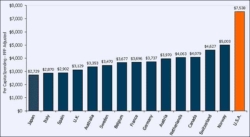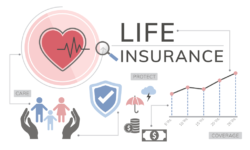Thanks to the rising cost of medical services, health insurance has become a must. It helps you cover unforeseen expenses arising out of medical emergencies. This should be the sole motivation for individuals to buy health insurance policies for themselves and their families. However, if it doesn’t encourage you enough, here’s another benefit of purchasing medical insurance: you receive tax benefits under Section 80D of the Income Tax Act, 1961. Yes, you can save tax legally by opting for health insurance. And tax saving is a crucial part of financial planning.
Section 80D stipulates a set of norms to avail income tax deductions. So, read on to explore how you can make the most of health insurance tax benefits.
Save Tax on Health Insurance Premium
As a policyholder, you can enjoy a deduction of up to ₹25,000 annually on health insurance premium payments. The benefits of this insurance plan can be availed by you, your spouse, and your children (dependent). The deduction limit on senior citizen health insurance plans is ₹50,000. So, if you and your spouse are 60 years old, you can claim a deduction of up to ₹50,000. This benefit includes additional coverage of ₹5,000 for expenses incurred on regular health checkups of family members–parents, spouse, and dependent children.
Preventive Health Checkups
Medical checkups help you identify any possible health concern even before it becomes a chronic disease. Hence, to appreciate and promote such preventive measures, the Income Tax Act offers an exemption of ₹5,000 (within the ₹25,000 and ₹50,000 bracket) on regular health checkups. So, if you pay ₹20,000 towards mediclaim and undergo a health screening of up to ₹5,000, you can avail a total of ₹25,000 under Section 80D. With the number of lifestyle disorders going up, keeping your health under check has become imperative.
You can avail tax benefits on both ‘indemnity’ and ‘defined benefit’ types of health insurance plans. To put it simply, Section 80D is applicable to plans such as individual health insurance plans, family floater plans, daily hospital cash plans, and critical illness plans offered by any standalone health insurance company or a general insurance company.
Life Insurance Riders
The Section 80D tax deduction is not limited to health plans from health insurance companies. You can seek tax benefits against premium payment of riders such as critical illness, hospital care, surgical care, or other health-insurance-related add-ons offered under a life insurance policy.
Premium Payment Method
People have the flexibility to pay their premiums through cash or any digital payment method. However, the Income Tax Department disallows tax benefits against premiums paid in cash. Hence, ensure you pay your premium amounts via payment gateways such as net banking, cheque, credit card, or draft.
Tax Savings Under Section 80DDB
Along with offering a financial safety net against critical diseases, your medical insurance policy also provides deductions up to ₹40,000 for normal citizens and ₹1,00,000 for senior citizens. If you incur healthcare expenses due to diseases like cancer, chronic renal failure, or cardiac arrest, you can avail an income tax deduction between ₹40,000 and ₹1,00,000 under Section 80DDB.
Since you have understood how health insurance plans can help you minimise your taxable income, you now have two reasons to buy health insurance–financial security and tax benefits. So, if you haven’t insured yourself and your family already, avoid delaying it any further. The soaring medical cost can cause severe financial stress if you or your family member contracts any chronic diseases.






